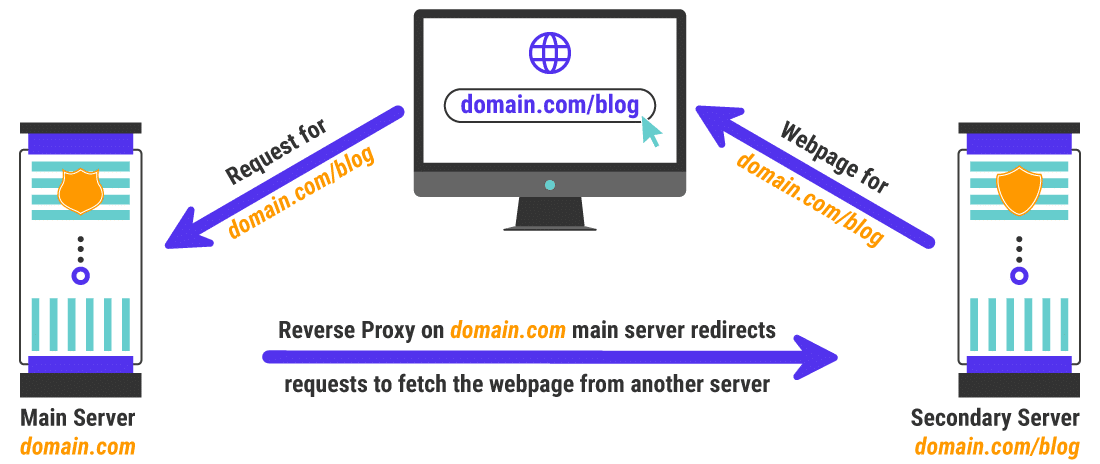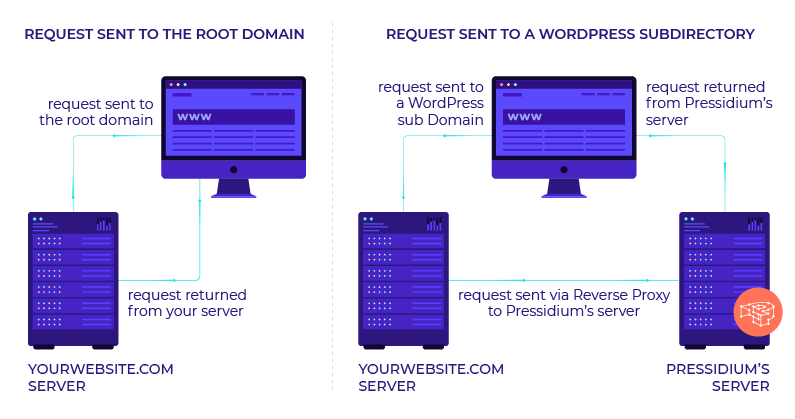Moz Q&A is closed.
After more than 13 years, and tens of thousands of questions, Moz Q&A closed on 12th December 2024. Whilst we’re not completely removing the content - many posts will still be possible to view - we have locked both new posts and new replies. More details here.
WordPress Sub-directory for SEO
-
Hi There,
I'm working on a WordPress site that includes a premium content blog with approx 900 posts.
As part of the project, those 900 posts and other membership functionality will be moved from the main site to another site built specifically for content/membership.
Ideally, we want the existing posts to remain on the root domain to avoid a loss in link juice/domain authority.
We initially began setting up a WordPress Multisite using the sub-directory option. This allows for the main site to be at www.website.com and the secondary site to be at www.website.com/secondary.
Unfortunately, the themes and plugins we need for the platform do not play nicely with WordPress Multisite, so we started seeking a new solution, and, discovered that a second instance of WordPress can be installed in a subdirectory on the server. This would give us the same subdirectory structure while bypassing WordPress Multisite and instead, having two separate single-site installs.
Do you foresee any issues with this WordPress subdirectory install? Does Google care/know these are two separate WordPress installs and do we risk losing any link juice/domain authority?
-
@himalayaninstitute said in WordPress Sub-directory for SEO:
WordPress can be installed in a subdirectory
I have done this a lot and I mean a lot what you want to do is set up a reverse proxy on your subdomain and this will allow you to not only bypass having to use multisite for subfolder but if you want to power it separately you can you do not have to it all. You should probably use your same server and power through Fastly our CloudFlare


once you set this up it is super easy to keep it running in your entire site will be much faster as a result as well
my response to someone else that needed a subfolder
https://a-moz.groupbuyseo.org/community/q/topic/69528/using-a-reverse-proxy-and-301-redirect-to-appear-sub-domain-as-sub-directory-what-are-the-seo-risksplease also look at it explained by these hosting companies is unbelievable easy to implement compared to how it looks and you can do so with Fastly or cloudflare in a matter of minutes
-
https://servebolt.com/help/article/cloudflare-workers-reverse-proxy/
-
https://support.pagely.com/hc/en-us/articles/213148558-Reverse-Proxy-Setup
-
https://wpengine.com/support/using-a-reverse-proxy-with-wp-engine/
-
https://thoughtbot.com/blog/host-your-blog-under-blog-on-your-www-domain
-
https://crate.io/blog/fastly_traffic_spike
*https://support.fastly.com/hc/en-us/community/posts/4407427792397-Set-a-request-condition-to-redirect-URL -
https://coda.io/@matt-varughese/guide-how-to-reverse-proxy-with-cloudflare-workers
-
https://www.cloudflare.com/learning/cdn/glossary/reverse-proxy/
-
https://gist.github.com/LimeCuda/18b88f7ad9cdf1dccb01b4a6bbe398a6
I hope this was of help
tom
-
-
@nmiletic The content section of the site requires a unique UI Design and other robust functionality, so having a separate theme/plugins in its own directory is going to be the way we go here. Thanks for your assistance!
-
@himalayaninstitute Have you thought about adding a page and making all of this new content a subpage? Or changing your permalink structure to include a category in the URL? You can then add all of these posts under that category and have the URL show up as www.example.com/category/page-or-post-name
-
The website at the subdirectory will be an online learning platform with a blog, online courses, memberships, gated content, etc. The content currently lives on the main site, so, it's great that we can move it into the subdirectory without taking a hit from Google.
Since these are fundamentally two separate websites, we're not concerned about needing to manage them independently.
Thanks again for your input and advice, we greatly appreciate it!
-
@amitydigital said in WordPress Sub-directory for SEO:
Google will view it as one site so you shouldn't have any issues from that perspective. The Google bot is just looking at pages and won't know/care that the underlying CMS that is running some pages is a different install than other pages. The downside is you now have two websites to maintain, two themes, two sets of files, etc... That may result in a bit of a headache in the future.
As @amitydigital put it, the issue with your approach would be repetitive tasks. You will not loose any DA nor PA (being that you implement a correct 301 redirection). What is going to be on the subdirectory?
-
Google will view it as one site so you shouldn't have any issues from that perspective. The Google bot is just looking at pages and won't know/care that the underlying CMS that is running some pages is a different install than other pages. The downside is you now have two websites to maintain, two themes, two sets of files, etc... That may result in a bit of a headache in the future.
Browse Questions
Explore more categories
-
Moz Tools
Chat with the community about the Moz tools.
-
SEO Tactics
Discuss the SEO process with fellow marketers
-
Community
Discuss industry events, jobs, and news!
-
Digital Marketing
Chat about tactics outside of SEO
-
Research & Trends
Dive into research and trends in the search industry.
-
Support
Connect on product support and feature requests.
Related Questions
-
AJAX requests and implication for SEO
Hi, I got a question in regard to webpages being served via AJAX request as I couldn't find a definitive answer in regard to an issue we currently face: When visitors on our site select a facet on a Listing Page, the site doesn't fully reload. As a consequence only certain tags of the content (H1, description,..) are updated, while other tags like canonical URLs, meta noindex,nofollow tag, or the title tag are not updating as long as you don't refresh the page. We have no information about how this will be crawled and indexed yet but I was wondering if anyone of you knows, how this will impact SEO?
Intermediate & Advanced SEO | | FashionLux0 -
Keywords in URL: sub-directory or single layer keywords?
Hi guys, im putting together a proposal for a new site and trying to figure out if it'd be better to (A) have a keyword split across multiple directories or duplicate keywords to have the keyword hyphenated? For example, for the topic of "Christmas decor" would you use; (A) - www.domain.com/Christmas/Decor (B) - www.domain.com/Christmas/Christmas-Decor in example B the phrase 'Christmas' is duplicated which looks a little spammy, but the key term "Christmas decor" is in the URL without being broken up by directories. which is stronger? Any advice welcome! Thanks guys!
Intermediate & Advanced SEO | | JAR8971 -
Onsite SEO vs Offsite SEO
Hey I know the importance of both onsite & offsite, primarily with regard to outreach/content/social. One thing I am trying to determine at the moment, is how much do I invest in offsite. My current focus is to improve our onpage content on product pages, which is taking some time as we have a small team. But I also know our backlinks need to improve. I'm just struggling on where to spend my time. Finish the onsite stuff by section first, or try to do a bit of both onsite/offsite at the same time?
Intermediate & Advanced SEO | | BeckyKey1 -
URL Structure for Directory Site
We have a directory that we're building and we're not sure if we should try to make each page an extension of the root domain or utilize sub-directories as users narrow down their selection. What is the best practice here for maximizing your SERP authority? Choice #1 - Hyphenated Architecture (no sub-folders): State Page /state/ City Page /city-state/ Business Page /business-city-state/
Intermediate & Advanced SEO | | knowyourbank
4) Location Page /locationname-city-state/ or.... Choice #2 - Using sub-folders on drill down: State Page /state/ City Page /state/city Business Page /state/city/business/
4) Location Page /locationname-city-state/ Again, just to clarify, I need help in determining what the best methodology is for achieving the greatest SEO benefits. Just by looking it would seem that choice #1 would work better because the URL's are very clear and SEF. But, at the same time it may be less intuitive for search. I'm not sure. What do you think?0